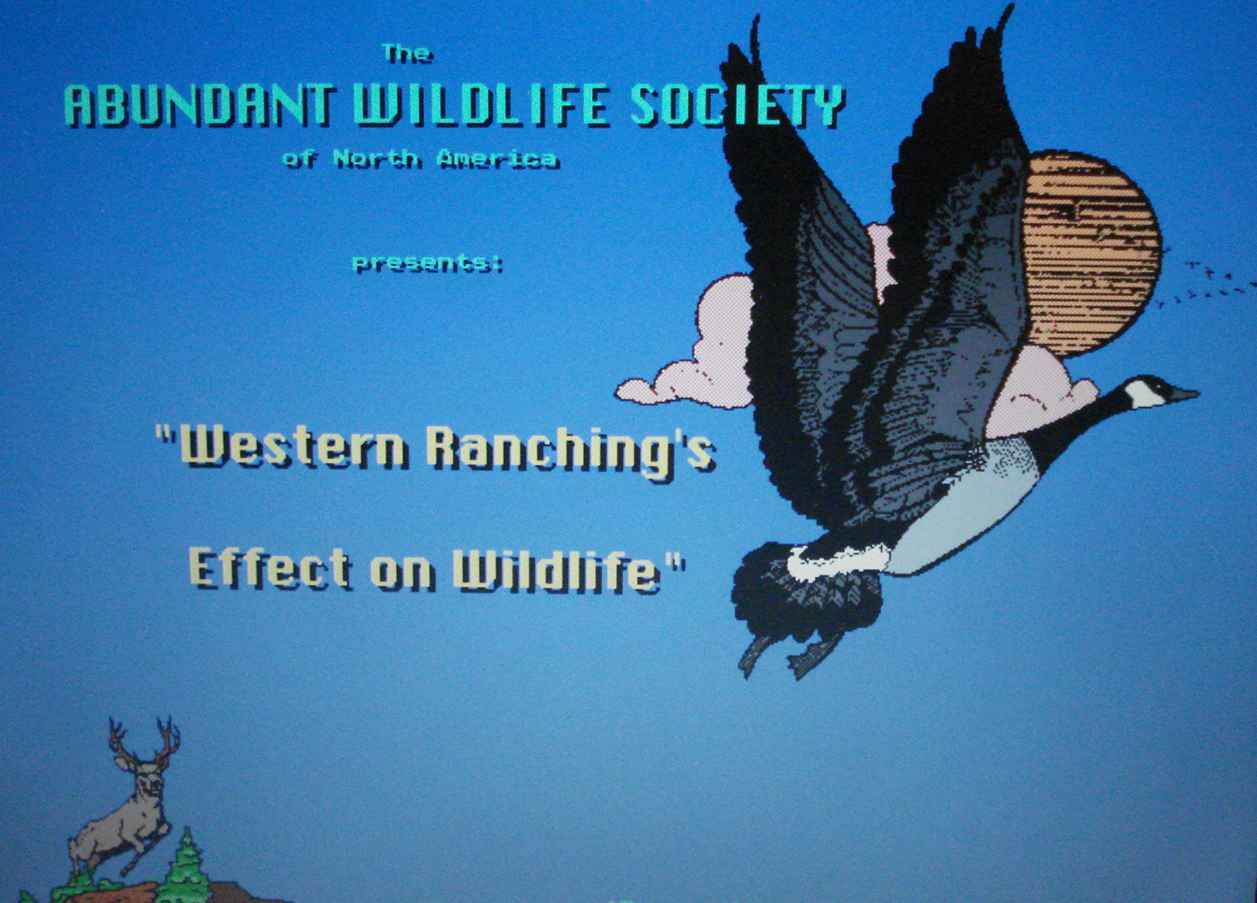|
Western Ranching's Effect of Wildlife
I liked Cliff Gardner as soon as I met him. He was the kind of person who
didn't just spout off opinions, but he methodically gathered
documentation to support whatever he told people. He was a life-long Nevada Rancher whose
experience convinced him that environmentalists didn't understand western
ranching, wildlife, or rangeland. My own experience made me agree with him.
In 1992 he engaged
me to prepare an "electronic pamphlet" to help set the record straight. He
arranged for the Abundant Wildlife Society of North America, which shared
many of Cliff's environmental viewpoints, to sponsor and distribute the
electronic pamphlet.
 First
Screen of the Electronic Pamphlet First
Screen of the Electronic Pamphlet
My challenge was to encapsulate the concepts into an
interactive computer program with photographs that would fit on a single 5.25" floppy disk.
Floppy disks were our pre-Internet method of distributing electronic programs.
I made the whole electronic pamphlet (including about 250 interactive screens
and 30 low-resolution photographs) fit into less than 1.2 MB. I did it using
the DOS based Quest Authoring Language. The electronic
pamphlet starts with you meeting with a county commissioner and then going
on a trip to Nevada to meet Cliff Gardner. Cliff takes you on a tour to show
you several western ranching sites. He demonstrates that wildlife species
prefer rancher-maintained grazing land over the original western-desert environment.
Wildlife need the same things livestock need, including water and actively
growing vegetation. Cliff shows that western lands were historically unproductive prior to
settlement by farmers and ranchers. He documents that
wildlife were scarce then compared to their abundance now. He explains the
benefit of rancher-created ecotones. The electronic pamphlet
lets the user develop and express his/her opinions and then write letters
expressing those opinions to various governmental offices.
I thought the electronic pamphlet would become "viral," with
readers sharing copies with acquaintances, thus propagating itself
throughout the realm of those for whom ranching and wildlife was an
important issue. Unfortunately, that idea was ahead of its time. I know the
electronic pamphlet found its way into governmental bureaucracies, but it
didn't seem to reach ranchers or the general public very well. In 1992,
computer literacy was developing slowly .
I couldn't find a way to make that old electronic
pamphlet run interactively on this website. My web hosting service said they have
"restricted access to cmd.exe on [their] servers due to security reasons on
shared hosting environment." But you can
download the zipped electronic
pamphlet, unzip it, and run it on your Windows computer. Within the
zipped file, is a file called "README.TXT." It has simple instructions for running the
DOS program from the Windows XP START/RUN command line, using a simple "Start"
command. Enjoy!
With newer versions of Windows, you may get an error message saying, it "cannot start or run due to incompatibility with 64-bit versions of Windows" (because this 1992 electronic pamphlet it is a 16-bit application). So, consider installing the free DOSBox application that can run old MS-DOS software on modern computers. I tried it and it worked (except for the electronic pamphlet's print options).
[Top] [Back]
[Home] |